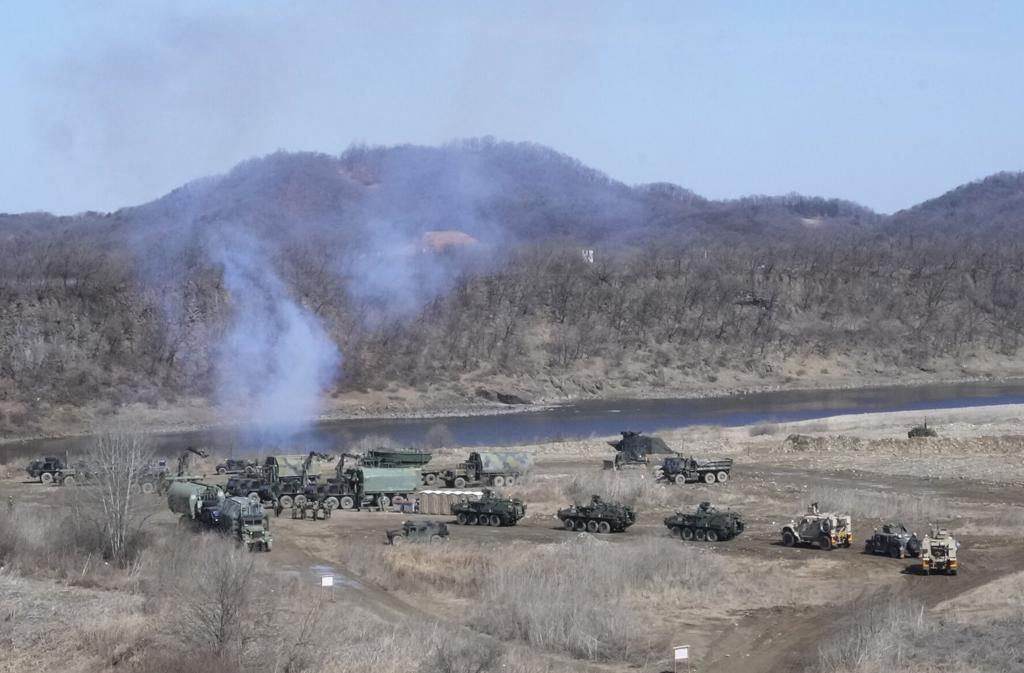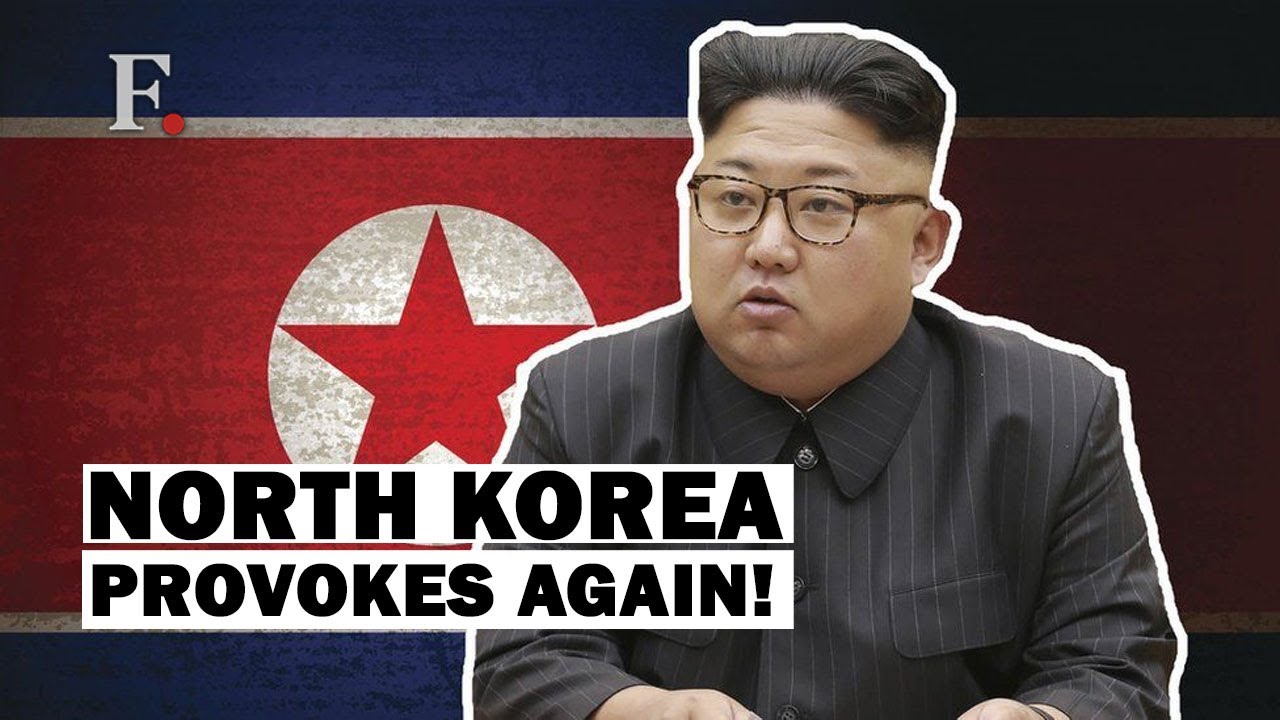North Korea Test-Fires Missile From Submarine Amid Tensions
On Sunday, North Korea conducted a missile test from a submarine, escalating tensions on the Korean Peninsula. The missile launch goes against the rules set by the UN Security Council and threatens the safety of the region.
Author:Camilo WoodReviewer:Elisa MuellerMar 14, 202310.3K Shares399.8K Views

North Korea test-fires missileamid tensions from a submarine on Sunday, in the latest escalation of tensions on the Korean Peninsula. The missile launch is a violation of United Nations Security Council resolutions and poses a threat to regional security.
On Monday, the South Korean and US forces began their largest joint exercises in years, prompting North Korea to claim it had tested submarine-fired cruise missiles in apparent protest.
As North Korea conducted launches on Sunday, it is anticipated that the nation would conduct provocative weapons tests throughout the 11-day U.S.-South Korean maneuvers.
Kim Jong Un, leader of North Korea, has reportedly ordered his military to remain on high alert in anticipation of "frantic war preparatory activities" from the South.

North Korea Fires Missiles From Submarine Ahead Of US-South Korea Drills
Missile Launch
The missile was launched from a submarine in the Sea of Japan, also known as the East Sea, on Sunday.
The launch was detected by the South Korean military, which condemned the act as a violation of international law.
The missile is believed to be a variant of the Pukguksong ballistic missile, which can be launched from both submarines and land-based mobile launchers.
The missile has a range of up to 1,200 kilometers (746 miles), which is capable of reaching targets in Japan and South Korea.
North Korea also conducted the first-ever test launches of submarine-launched cruise missiles during these exercises. All of its prior submerged launches were of ballistic missiles. Moreover, this is the first occasion that North Korea has launched several missiles from a submarine at the same time, according to experts.
“„At a time when its efforts to build (bigger submarines) have reported little progress due to the sanctions, North Korea wants to show it’s still almost developed the types of missiles that can be fired from a submarine.- Moon Keun-sik, a submarine expert, Kyonggi University in South Korea
International Response
The United States, Japan, and South Korea have condemned the missile launch, and the United Nations Security Council is scheduled to hold an emergency meeting on Monday to discuss the issue.
The United States State Department issued a statement condemning the missile launch and reaffirming its commitment to the security of its allies in the region.
Japan's Defense Minister, Nobuo Kishi, described the missile launch as a "serious security threat" and stated that Japan would take necessary measures to protect its citizens.
South Korea's Joint Chiefs of Staff stated that the missile launch was a "grave provocation" and that it would respond with strong measures.
Tensions On The Korean Peninsula
The missile launch is the latest escalation of tensions on the Korean Peninsula, which have been simmering for several years.
North Korea's nuclear and missile programs have been a source of concern for the international community, and the country has conducted several missile tests in recent months.
The launch comes amid stalled denuclearization talks between North Korea and the United States. The two sides have been in a deadlock since the collapse of their second summit in Hanoi in 2019.
On Monday, North Korea's Foreign Ministry said that the United States and other Western countries were planning to convene the United Nations Security Council to examine the country's "non-existent human rights crisis." Specifically, it promised "the harshest counteraction against the most ferocious hostile plans of the U.S. and its adherents."
Final Words
The missile launch by North Korea from a submarine is a clear violation of international law and a threat to regional security.
The international community has condemned the launch, and the United Nations Security Council is set to hold an emergency meeting to discuss the issue.
The missile launch is the latest escalation of tensions on the Korean Peninsula, highlighting the need for diplomatic efforts to resolve the issue.
The missile launch also underscores the urgency of addressing the threat posed by North Korea's nuclear and missile programs.

Camilo Wood
Author
Camilo Wood has over two decades of experience as a writer and journalist, specializing in finance and economics. With a degree in Economics and a background in financial research and analysis, Camilo brings a wealth of knowledge and expertise to his writing.
Throughout his career, Camilo has contributed to numerous publications, covering a wide range of topics such as global economic trends, investment strategies, and market analysis. His articles are recognized for their insightful analysis and clear explanations, making complex financial concepts accessible to readers.
Camilo's experience includes working in roles related to financial reporting, analysis, and commentary, allowing him to provide readers with accurate and trustworthy information. His dedication to journalistic integrity and commitment to delivering high-quality content make him a trusted voice in the fields of finance and journalism.

Elisa Mueller
Reviewer
Elisa Mueller, a Kansas City native, grew up surrounded by the wonders of books and movies, inspired by her parents' passion for education and film.
She earned bachelor's degrees in English and Journalism from the University of Kansas before moving to New York City, where she spent a decade at Entertainment Weekly, visiting film sets worldwide.
With over 8 years in the entertainment industry, Elisa is a seasoned journalist and media analyst, holding a degree in Journalism from NYU. Her insightful critiques have been featured in prestigious publications, cementing her reputation for accuracy and depth.
Outside of work, she enjoys attending film festivals, painting, writing fiction, and studying numerology.
Latest Articles
Popular Articles